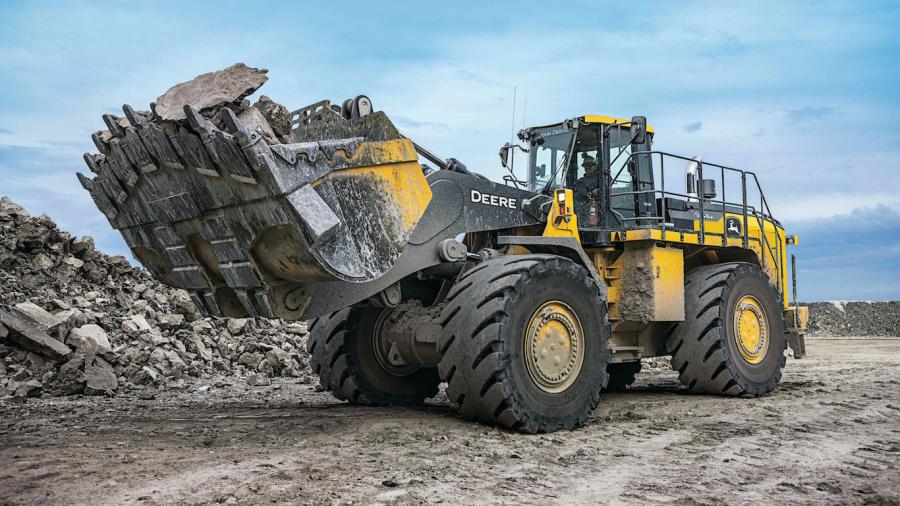
Wed October 21, 2020
John Deere
A testament to the durability and performance of the John Deere machines, the 944K Hybrid wheel loader has logged 1 million operating hours in the field.
"Whenever we develop a machine, customer needs, such as durability, productivity, profitability and low operating costs, are always at the forefront of our designs. By reaching the 1 million-hour mark on our 944K loaders, we are affirming that electrically driven machines offer proven durability and performance advantages for our customers," said Grant Van Tine, solutions marketing manager, John Deere.
"We're always looking for new ways to improve upon the equipment our customers need and can use our field-proven design to develop and perfect even more solutions in the future."
First launching in 2015, the 944K Hybrid model features a 536-hp, Final Tier IV engine, which delivers impressive torque and responsiveness while maintaining good boom and bucket speed, according to the manufacturer.
At Cornejo & Sons (Summit Materials), the 944K replaced a size-class larger wheel loader.
"The 944K meets our production requirements as well as our previous piece of equipment, and at a lower cost," said Adam Ware, site manager of Cornejo & Sons (Summit Materials), which owns a 944K Hybrid wheel loader.
"The other machine burned about 24 gallons of fuel an hour, where the 944K burns around 9 gallons per hour while doing the same work."
In addition to its fuel-saving capabilities, the 944K Hybrid also incorporates other features to deliver reliable, long-term performance, especially in quarry or large loadout applications. Most notable are the brushless AC generators and motors, water-cooled brake resistors and solid-state power electronics.
The 944K's electric drive system significantly reduces operating costs for customers compared to conventional drivetrains by eliminating torque converter and transmission rebuilds at mid-life, according to the manufacturer.
Other key features include standard traction control, which automatically limits torque to any wheel when slippage occurs, increasing machine traction in poor underfoot conditions, and enhanced rimpull control to virtually eliminate tire spin and slicing. Coast control reduces service-brake wear and includes functions, like dynamic braking in a hydrostatic transmission, slowing the loader without touching a pedal and helping to reduce service-break component wear.
For more information, visit www.johndeere.com/.
This story also appears on Construction Equipment Guide.
 Aggregate Equipment
Aggregate Equipment Articles
Articles Sign up for Updates
Sign up for Updates Sell Your Machines
Sell Your Machines

 Aggregate Equipment
Aggregate Equipment Aggregate Dealers
Aggregate Dealers Aggregate Articles
Aggregate Articles Sign up for Updates
Sign up for Updates Sell Your Machines
Sell Your Machines